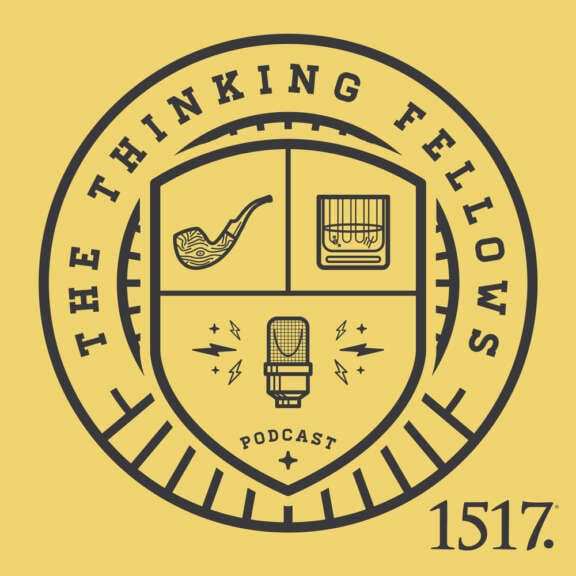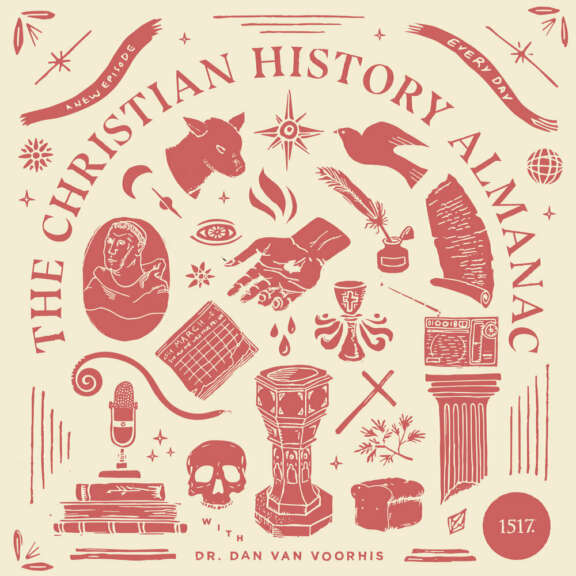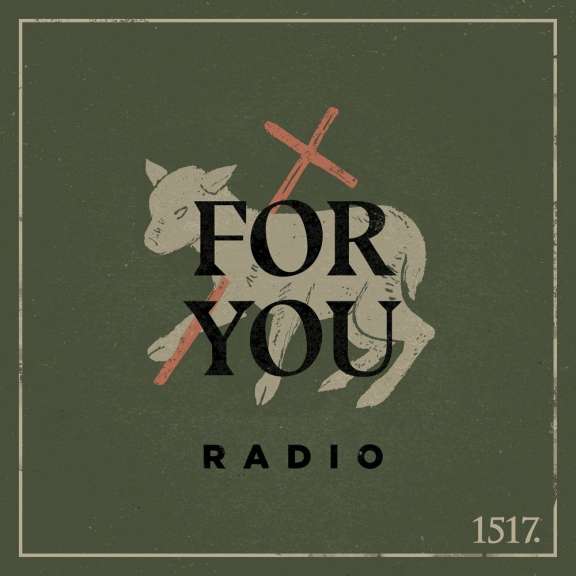I’ve Got My Love to Keep Me Warm In this episode, we discuss how pre-modern church history, the Industrial Revolution, therapeutics, language, corporate culture, and the flight of heretics from Europe in the 17th-18th century affected contemporary Western churches.
Podcasts
Each 1517 Podcast is dedicated to delivering Christ-centered content through weekly, monthly, and seasonal audio platforms. Listen online or on your favorite podcasting app.
Author
- All Authors
- Aaron Zimmerman
- Adam Francisco
- Amy Mantravadi
- Blake Flattley
- Bob Hiller
- Bradley Gray
- Brian W. Thomas
- Bror Erickson
- Bruce Hillman
- Caleb Keith
- Chad Bird
- Chris Rosebrough
- Christopher Gillespie
- Cindy Koch
- Craig Donofrio
- Dan van Voorhis
- Daniel Deen
- Daniel Emery Price
- Darrin Sheek
- David Andersen
- David Rufner
- David Zahl
- Debi Winrich
- Delwyn Campbell
- Donavon Riley
- Doug Klembara
- Edward Killian
- Elyse Fitzpatrick
- Erick Sorensen
- Flame
- Grant Klembara
- Gretchen Ronnevik
- Haroldo Camacho
- Jacob Smith
- Jared C. Wilson
- Jeff Mallinson
- Jeffrey Pulse
- Jessica Thompson
- Jim Nestingen
- Joel Fitzpatrick
- Joel Hess
- John Andrew Schreiner
- John Bombaro
- John T. Pless
- John W. Hoyum
- John Warwick Montgomery
- Katie Koplin
- Kelsi Klembara
- Ken Sundet Jones
- Luke Kjolhaug
- Magnus Persson
- Mark Mattes
- Matt Popovits
- Michael Berg
- Michael Horton
- Nick Lannon
- Paul Koch
- Peter Nafzger
- Philip Bartelt
- Raleigh Sadler
- RJ Grunewald
- Robert Kolb
- Rod Rosenbladt
- Ron Hodel
- Sam Leanza Ortiz
- Sarah Condon
- Sarah Crowder
- Scott Davis
- Scott Keith
- Steven Paulson
- Tanner Olson
- Troy Neujahr
- Uwe Siemon-Netto
- Wade Johnston
- William Cwirla
-
Lutherans started the Protestant Reformation. However, they shy away from the term today.
-
Come Together, Right Now… In this episode, we read from Tim Keller’s sermon, which asks, “What is the Church?” We discuss the relationship between churches and culture, what the church is and isn’t, where we locate faith, whether Christian faith changes one’s values, and much more.
-
Weekend Edition for May 10-11, 2025
-
The Fellows continue their conversation about Lutheran identity. This time, they discuss the term "evangelical."
-
Burning Down The House. In this episode, we continue our discussion of election, addressing the certainty of election, how we are chosen, the human limits of perseverance in faith, why the pope is a bad example of Christian piety, and how old Adam tries to invert election by burying it in our sacrifices and pious moralism.
-
Jared C. Wilson joins Kelsi to chat about his latest book, Lest We Drift: Five Departure Dangers from the One True Gospel.
-
Today on the Christian History Almanac, we remember the Huguenots and their disastrous American colonies.
-
In this episode of the Thinking Fellows podcast, Caleb Keith, Adam Francisco, Bruce Hillman, and Scott Keith engage discuss an ongoing identity crisis within Lutheranism.
-
Sunday Bloody Sunday In this episode, we read Martin Luther’s sermon for Maundy Thursday (1534), discussing the Lord’s Supper, polity, sacramental piety, fellowship, election and all the rabbit trails we follow…
-
Can’t You See. In this episode, we read the Lutheran theologian Matthias Flacius, and discuss inter-church debates, the Lord’s Supper as ground zero for most church conflicts, the consequences of compromise in matters of faith, the limits of love, and when it’s time to push away from the table and go into prayer.
-
. . . and these three testify. Testify to what?




